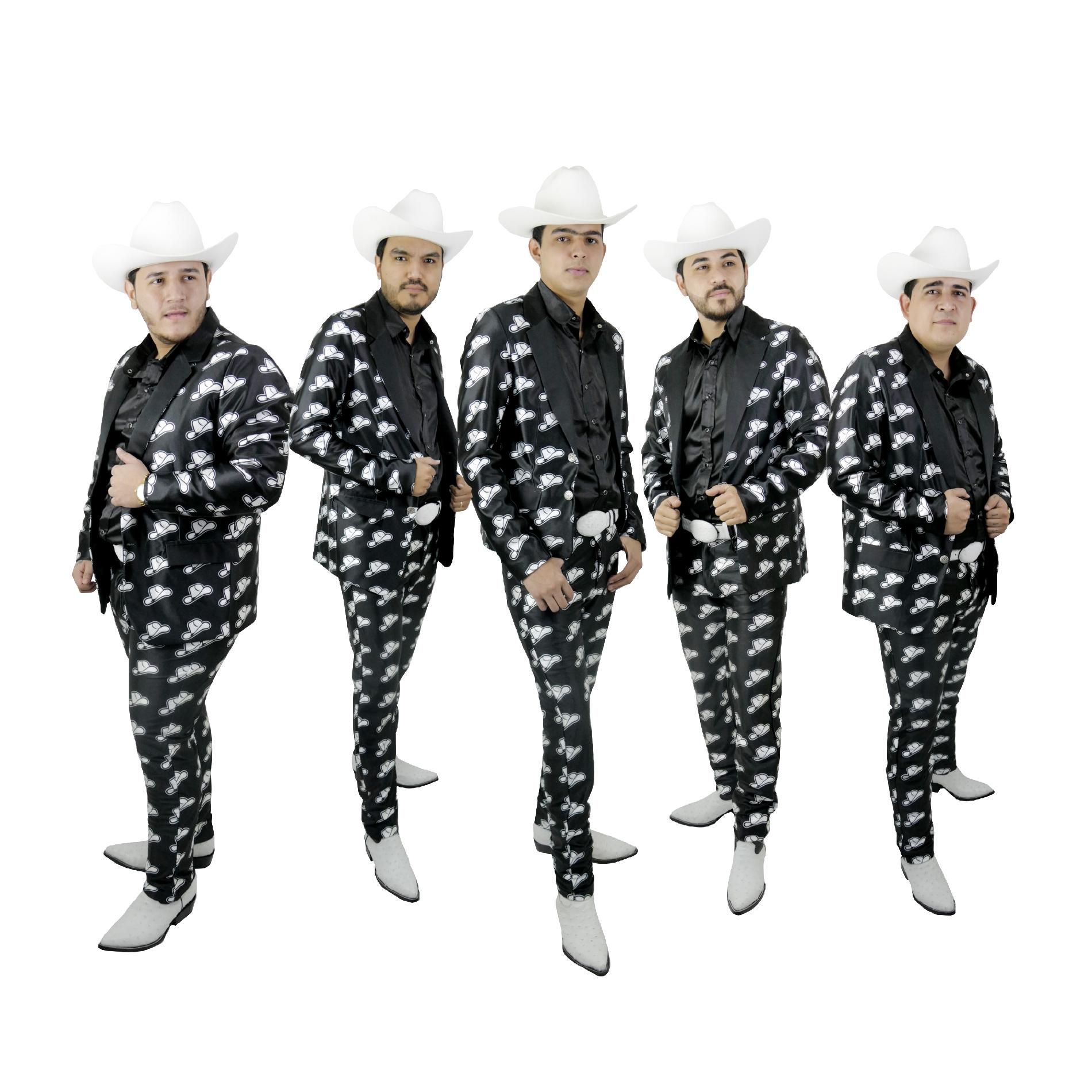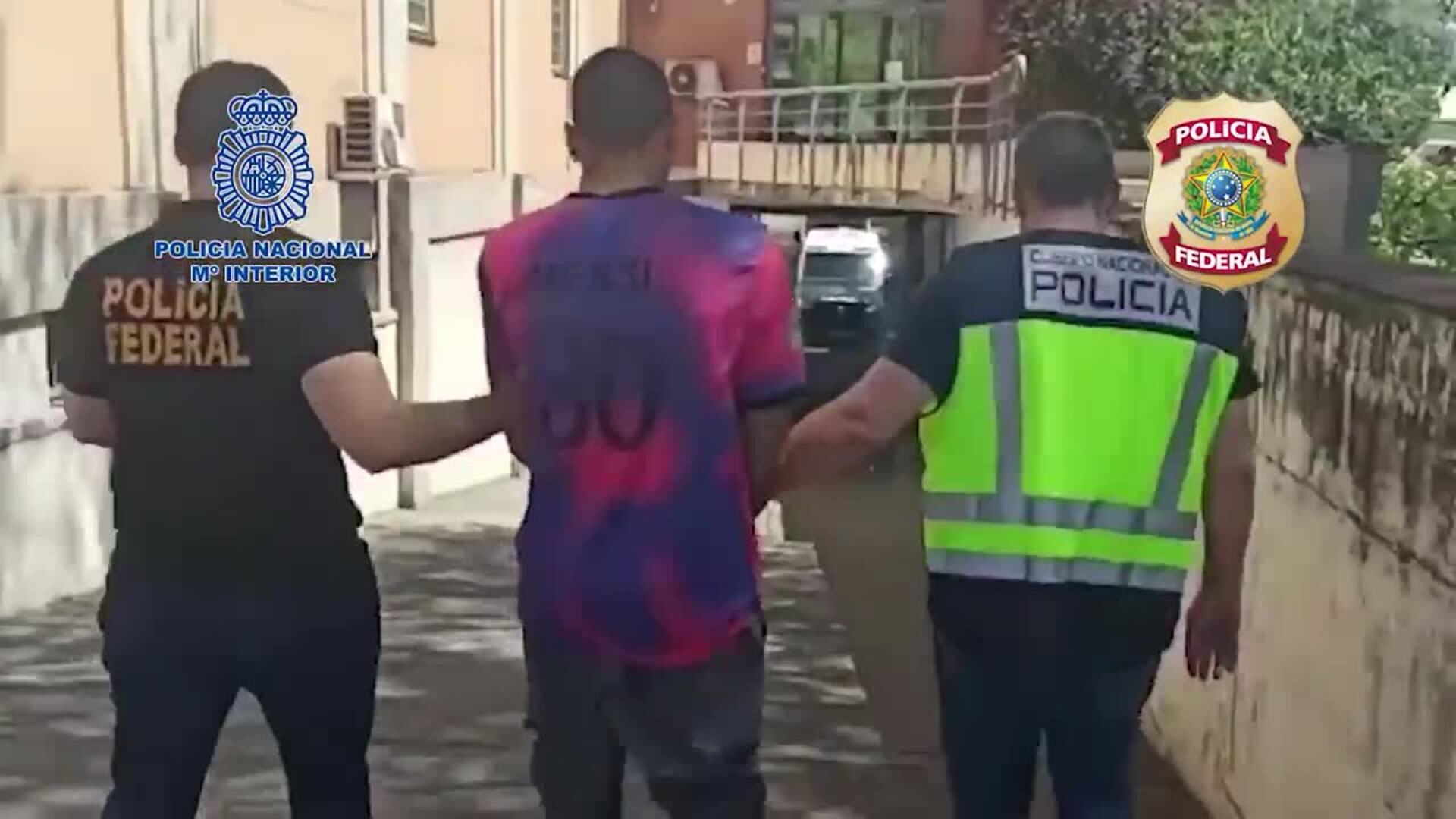Grupo Fugitivo - Exploring Connections And Collectives
Have you ever stopped to consider what truly makes up a group? It's a concept we use often, in daily chats, in describing people we know, or even when talking about things that just seem to go together. So, too, when we think about a "grupo fugitivo," we're really looking at how a collection of individuals or items might come together, perhaps with a shared aim, even if their situation suggests movement or being on the run. This idea, you know, of what ties separate parts into a whole, is actually pretty fascinating, especially when you add in the notion of being a "fugitivo."
This piece will help you sort of get a handle on the various ways we describe groups, drawing from how people talk about them in different settings. We'll explore the different facets of what it means for things or people to form a collective, and then, in a way, think about how that definition might stretch or shift when the word "fugitivo" comes into play. It's about looking at the very basic building blocks of what a group is, and then considering how that structure might adapt under certain conditions.
We'll be talking about how a "grupo" can be a bunch of people or things, how they might be organized, or even just how they share something in common. It's really about the shared threads that link individuals or objects, and how those connections could be influenced by the idea of being "fugitivo." We're not making up stories, just exploring the definitions themselves and what they could mean, you know, in a general sense.
Table of Contents
- What Exactly is a Grupo?
- How Do People Form a Grupo Fugitivo?
- The Shared Threads of a Grupo
- When a Grupo is on the Move - What Does Fugitivo Mean for Them?
- Different Kinds of Grupos and the Fugitivo Idea
- Do All Grupos Have a Purpose?
- The Italian Roots of "Grupo" and "Grupo Fugitivo"
- The Fluid Nature of a Grupo
What Exactly is a Grupo?
When someone mentions the word "grupo," it actually carries a few different meanings, depending on the situation. For instance, in common English usage, "grupo" often translates simply to "group" or sometimes even "team." This shows us, in a way, that the core idea is about more than one thing or person being together. It's a collection, a gathering, or a set of items that are, you know, somehow connected.
Think about it: when a teacher divides students for a school assignment, they put them into "grupos" for the project. This suggests a collection of people brought together for a specific task. So, a "grupo" here means a small unit of people working together, basically. This kind of arrangement is quite common, and it helps get things done, really.
Or, consider someone buying a video of their favorite "grupo." In this situation, the word "grupo" probably points to a music band, a collection of performers who make music together. This is a very different sort of gathering from a school project team, but it still fits the general idea of several individuals forming a single unit. It's about shared activity, in this case, artistic expression, that brings them together, you know.
The concept of "grupo" can also describe a general collection, like a "set" of things. This might be a bunch of athletes playing together, who we'd call a "team," or even a collection of coworkers, also sometimes called a "team." So, the term can be used for people who are working side by side, or playing a sport, or just generally doing things as a unit. There's a common thread there, you see, a sense of togetherness.
Sometimes, a "grupo" is simply a number of people waiting somewhere, like "a group of people waiting for you outside." Here, the individuals might not have a strong shared purpose beyond waiting, but they are still a discernible collection. It's just a gathering of people, more or less, at a certain place. This shows how broad the meaning can be, covering even casual assemblies.
How Do People Form a Grupo Fugitivo?
When we think about a "grupo fugitivo," we're adding another layer to this idea of a collection. A "fugitivo" suggests someone or something that is, you know, fleeing or trying to avoid capture. So, if we combine "grupo" with "fugitivo," we're talking about a collection of beings or things that are, in some way, on the move or in hiding. This changes the dynamic of the "grupo" quite a bit, actually.
A "plurality of beings or things that form a set," whether that set is something you can touch or just an idea in your mind, is the core definition of a "grupo." Now, if this collection is a "grupo fugitivo," that "set" might be less easy to see, or its members might be trying very hard not to be seen. The very nature of being "fugitivo" means that the set, though it exists, might be somewhat hidden or constantly shifting its form, you know, to stay out of sight.
Imagine a "grupo" of living beings that are "fugitivo." They are still more than one, still a collection, but their collective identity is shaped by their need to move quickly or to remain undetected. Their togetherness might be born out of a shared need to escape or to survive, making their bond quite particular. This shared situation, you see, creates a very strong kind of connection, even if it's one born of necessity.
Even if we consider a "grupo" of things, like a "set of devices intended to provide a specific service," if these devices were part of a "grupo fugitivo," it would mean they are not in a fixed location. They would be portable, perhaps, or moved around often, always ready to be relocated. This suggests that the very function of the "grupo" of devices is tied to its ability to be mobile and, in a way, hard to pin down. So, the "fugitivo" aspect changes how the "grupo" operates, you know, in a practical sense.
The Shared Threads of a Grupo
A "grupo" is often described as a set of parts that are "more or less organized" and that "respond to a determined criterion." This means there's some kind of structure, even if it's not super strict, and there's something that brings them all together, a common rule or reason for being a "grupo." This idea of a shared basis is pretty important for understanding what a "grupo" really is, in some respects.
These parts can be "living beings" or just "things." So, whether we're talking about people, animals, or even inanimate objects, if they meet this idea of being somewhat organized and sharing a common link, they can be called a "grupo." This broad definition allows for many different kinds of collections to fit the description, which is quite useful, actually.
When we add the "fugitivo" element, this "organization" and "criterion" take on a new meaning. A "grupo fugitivo" would still have some kind of internal arrangement, but it might be one that is very flexible and adaptable, allowing for quick changes. The "determined criterion" that brings them together could be their shared status as being on the run, or their mutual aim to avoid something. This common goal, you know, would really shape their internal workings.
The very "stability" of a "grupo" is something that can be affected by the "fugitivo" aspect. A "grupo" is often seen as having "certain organization, stability, and interdependence for the achievement of a common objective." But for a "grupo fugitivo," this "stability" might be more about remaining together despite constant movement, rather than staying in one place. Their connections, while strong, might need to be very fluid, allowing them to adapt to changing circumstances, basically.
When a Grupo is on the Move - What Does Fugitivo Mean for Them?
What happens when a "grupo" becomes "fugitivo"? The term "fugitivo" implies a state of being on the run, or trying to avoid being caught. So, for a "grupo," this means their collective existence is now defined by movement, evasion, or a need for discretion. It's a situation that truly reshapes how the "grupo" functions and interacts, you know, with the outside world.
A "grupo" is a "set of individuals who interact with each other and share a purpose, common interests, or a shared identity." If this "grupo" is "fugitivo," their "interaction" might be more discreet, perhaps using coded messages or meeting in secret places. Their "purpose" might be centered around survival or reaching a safe haven. Their "common interests" could be very specific to their situation, like finding resources or staying hidden, more or less.
The "shared identity" of a "grupo fugitivo" would be very strong, often forged through shared experiences and challenges. This identity might be something they keep to themselves, not openly displayed, but it would bind them together very tightly. It's a kind of unity that comes from facing similar circumstances, which is actually quite powerful.
Groups can "vary in size." A "grupo fugitivo" might find that its size needs to be quite specific to its needs. Perhaps a smaller size makes it easier to move without being noticed, or a larger size provides more protection. The optimal number of members for a "grupo fugitivo" would likely be dictated by the practicalities of their situation, you know, what works best for them.
Different Kinds of Grupos and the Fugitivo Idea
A "grupo" can be made up of "several people who gather for a certain purpose." This purpose could be anything from a social club to a business meeting. But when this "grupo" is also "fugitivo," that "certain purpose" becomes critical. It's not just a casual gathering; it's a gathering with a very pressing, often urgent, aim that requires them to be elusive. This kind of purpose gives the "grupo" a very clear direction, basically.
The word "grupo" itself comes from the Italian concept of "gruppo," which simply refers to a "plurality of beings or things." This origin reminds us that the basic idea is just about more than one item or person being together. It's a fundamental concept, really, that applies across many different situations.
So, a "grupo fugitivo" is still, at its heart, a "plurality of beings or things." The "fugitivo" part just tells us something about their current state or activity. It's about how that collection is behaving, or what its circumstances are, rather than changing the fundamental definition of "grupo" itself. It's like adding an adjective to a noun, you know, giving it a specific flavor.
Think about a "grupo" that is a "music band." If such a "grupo" were "fugitivo," it wouldn't mean they stop being a band. It would mean their performances might be secret, their movements carefully planned, and their existence somewhat underground. They would still create music together, but their activities would be shaped by their need to remain hidden. This shows how the core identity of the "grupo" can remain, even if its circumstances change dramatically, actually.
Do All Grupos Have a Purpose?
While many definitions of "grupo" point to a shared purpose or objective, not all groups necessarily have one that is explicitly stated or widely known. Sometimes, a "grupo" is simply a collection of things or people that happen to be together, like the "group of people waiting outside." However, when we consider a "grupo fugitivo," the idea of a shared purpose becomes much more pronounced, you know, almost essential.
For a "grupo fugitivo," their shared purpose might be the very thing that keeps them together and moving. It could be a goal of reaching safety, or perhaps achieving some specific outcome that requires them to be out of sight. This purpose acts as a powerful unifying force, giving direction to their actions and shaping their interactions. It's what drives them, basically.
The way a "grupo" is structured can also "vary." Some "grupos" might have a very clear hierarchy, while others are more informal. For a "grupo fugitivo," the structure might be quite fluid, adapting quickly to new situations. It might be a structure that prioritizes quick decision-making and efficient movement, perhaps with roles shifting as needed. This adaptability is key for their survival, in a way.
The "interdependence" within a "grupo" is also a key aspect. Members often rely on each other to achieve their shared goals. In a "grupo fugitivo," this interdependence would be extremely important. Each member's safety and success would likely depend on the actions and reliability of the others. It's a very close bond that forms when people depend on each other for such critical things, you know, like staying safe.
The Italian Roots of "Grupo" and "Grupo Fugitivo"
It's interesting to note that the word "grupo" has its origins in the Italian concept of "gruppo." This simply refers to a "plurality of beings or things." This historical root tells us that the fundamental idea behind a "grupo" is simply about more than one item or person being together. It's a basic building block for describing collections, really.
So, when we talk about a "grupo fugitivo," we're still referring to a collection of multiple beings or things. The "fugitivo" part just adds a descriptive layer, telling us about the state or activity of that collection. It doesn't change the core meaning of "grupo" as a plurality. It's just a specific kind of plurality, you know, one that is in motion or avoiding detection.
This historical connection helps us remember that the word "grupo" is quite old and has been used to describe various kinds of collections for a long time. It's a versatile word that can apply to many different situations, from a small gathering to a large organization. This versatility allows us to talk about a "grupo fugitivo" using the same basic framework, just with an added characteristic, basically.
The idea of a "plurality" is fundamental to any

Download Get Inspired with Grupo Firme Wallpaper | Wallpapers.com

EL FUGITIVO - Grupo Arriesgado - LETRAS.COM

La Policía detiene a un fugitivo vinculado al grupo criminal brasileño